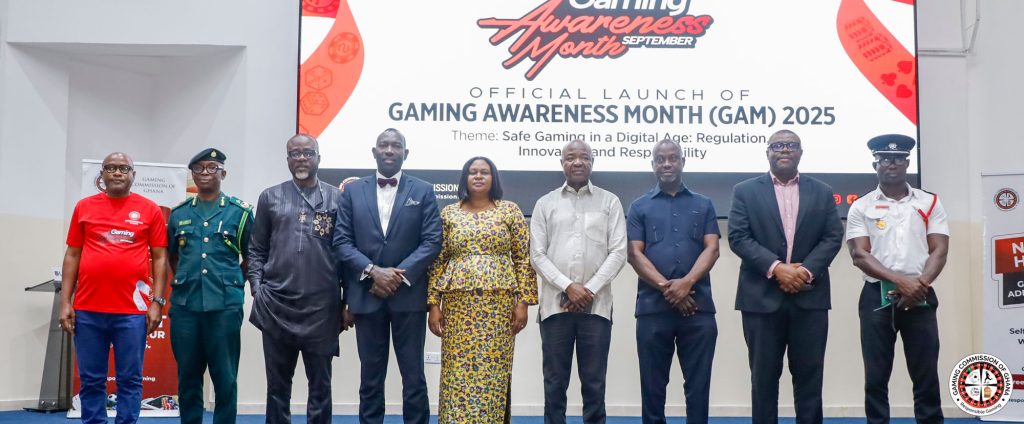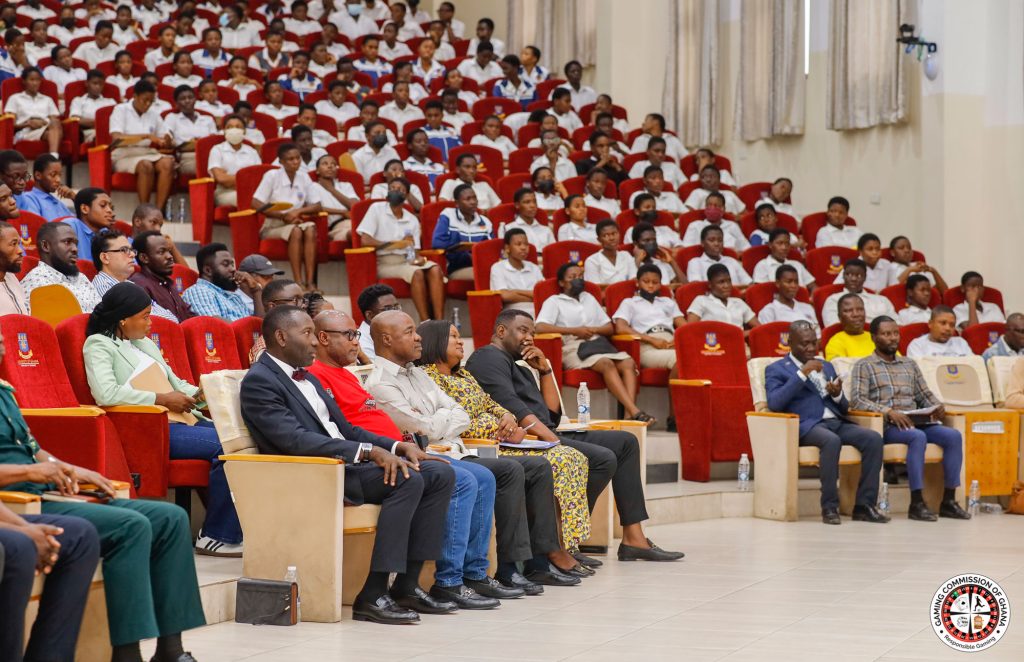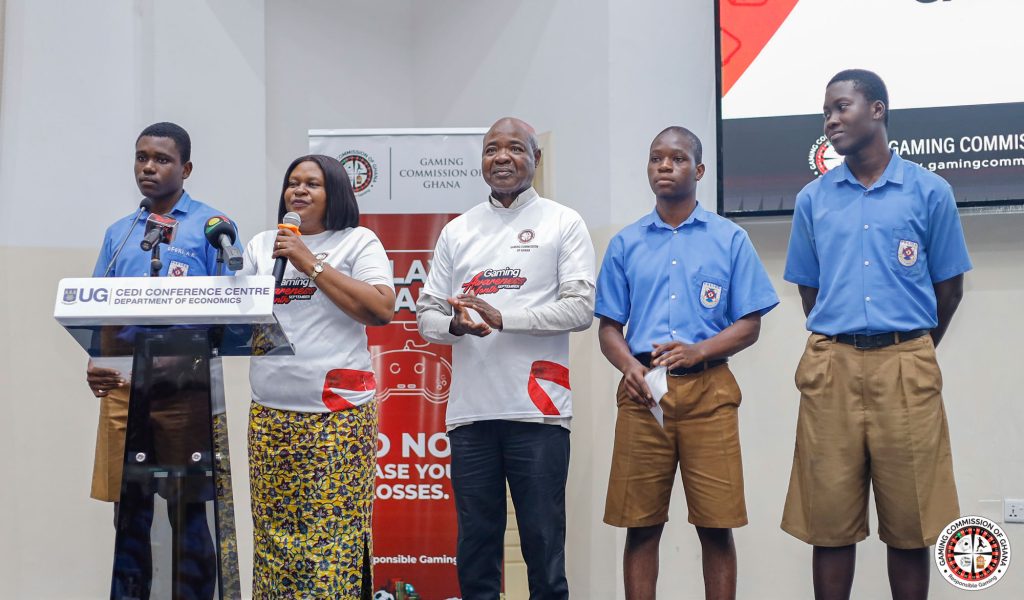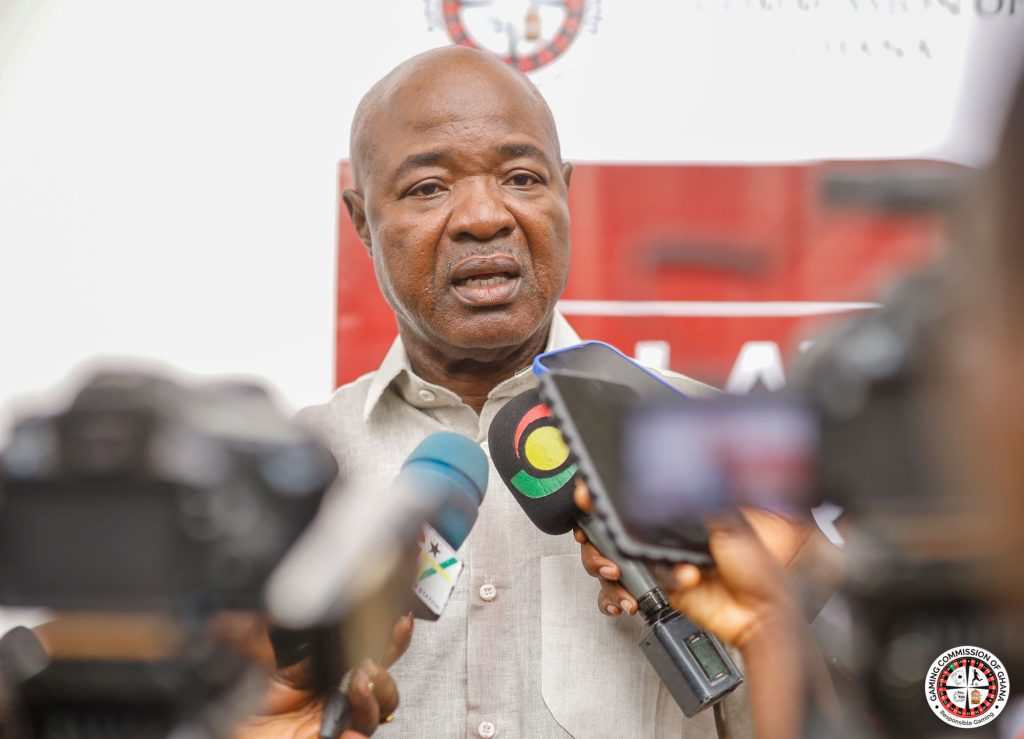
The Gaming Commission of Ghana has officially launched the 2025 Gaming Awareness Month with a strong call to safeguard young people from the dangers of betting and gaming addiction. The launch, held at the Cedi Conference Center, University of Ghana, Legon, was themed: “Safe Gaming in a Digital Age: Regulation, Innovation and Responsibility.”
Delivering the keynote address on behalf of the Minister of the Interior, Hon. Muntaka Mohammed-Mubarak, the Chief Director of the Ministry, Mrs. Doreen Panyin Annan, highlighted the growing risks of gaming addiction among the youth, including women and girls.
She revealed that a May 2025 study by the Gaming Commission found that 46% of tertiary students used their stipends to gamble, while 9% used their tuition fees for the same purpose. “These numbers are alarming. We need our youth for national development, and we cannot allow gambling addiction to rob Ghana of her future leaders. Gambling addiction leads to depression, theft, isolation, and even broken families. We must protect our young people, because they are our hope for national development,” Mrs. Annan stressed.
Mrs. Annan praised the Gaming Commission’s outreach programmes at the University of Professional Studies, Accra, and the Accra Technical University, where over 1,500 students were sensitized. She also commended the Gaming Commission’s collaboration with the Ghana Mental Health Authority and with the sector gaming operators, in rolling out the sensitization programmes and pledged the Ministry’s support.

Adding his voice, the Deputy Minister of Food and Agriculture and Member of Parliament for Ayawaso West Wuogon, Hon. John Settor Dumelo, urged students to redirect their energies into sectors such as agriculture. “As students, avoid betting. Don’t see gaming as your future. See agriculture as your future, which guarantees you a return. Bet on agriculture,” he advised.

The Acting Gaming Commissioner, Mr. Emmanuel Siisi Quainoo, expressed deep concern over the rising betting culture among Ghanaian youth, noting that digital platforms have made gambling far more accessible. “Gaming activities on campuses, in homes, pubs, and other places are gradually becoming a norm, with negative consequences. The situation places a huge responsibility on the Commission to not only regulate but also ensure that gambling does not derail students from their education,” he stressed.
He reminded the youth that gaming should be treated purely as entertainment and not as an investment, warning that chasing “quick money” often leads to addiction and despair. Mr. Quainoo assured that the Commission would intensify its outreach across the regions to sustain education on responsible gaming. “Our motto, Responsible Gaming, clearly indicates that the Gaming Commission will not sit by and watch as our youth engage in irresponsible betting that could have dire consequences for national development,” he added.

The launch of the 2025 Gaming Awareness Month signals the beginning of a nationwide sensitization drive to educate schools, communities, and the public on anti-child gaming and the importance of responsible gaming practices.

